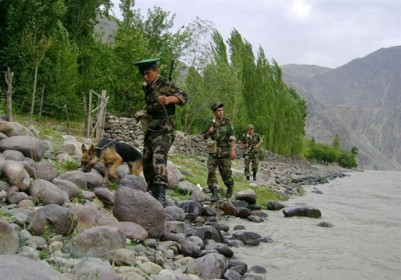DUSHANBE, August 11, 2011, Asia-Plus – Russian President Dmitry Medvedev ordered to sign a new high-level border cooperation agreement between Russia and Tajikistan, Interfax reported.
“Accept the Russian Federal Security Service’s proposal on the signature of the Russian-Tajik border cooperation agreement, which was adjusted with the Russian Ministry of Foreign Affairs. It is rational to sign the agreement at the highest level,” Russian President’s decree says.
The agreement is expected to be signed by Russian and Tajik Presidents in the course of the Russian President Dmitry Medvedev’s visit to Tajikistan which is scheduled for early September this year, a source in the Tajik Government reported.
Phased withdrawal of Russian border troops from Tajik-Afghan border started in 2005 after the signature of the Tajik-Russian border cooperation agreement signed on October 16, 2004. Under the same agreement the Russian Federal Security Service set up a special border group in Tajikistan to support the process of formation of Tajik border troops.
The draft border cooperation agreement was designed in 2011 in close collaboration with Russian experts. The document meets the interests of both Tajikistan and Russia.
According to the Tajik State National Security Committee’s Border Department, the issue of the return of Russian border troops to Tajik-Afghan border has not been discussed in the course of these negotiations.
“The new agreement neither limits nor expands the presence of Russian border troops in Tajikistan, but changes the format of our cooperation in accordance with modern realities and the character of current challenges and threats,” the source said.
It also said that under the new agreement Russian border troops will continue to provide support to Tajik border troops which will include, trainings for officers, air transportation, supply of equipment. The assistance will also be provided on a free-of-charge basis.
“Under this new format of our cooperation Russian border troops located in Tajikistan will be reorganized into Border Cooperation Group,” the source added.




